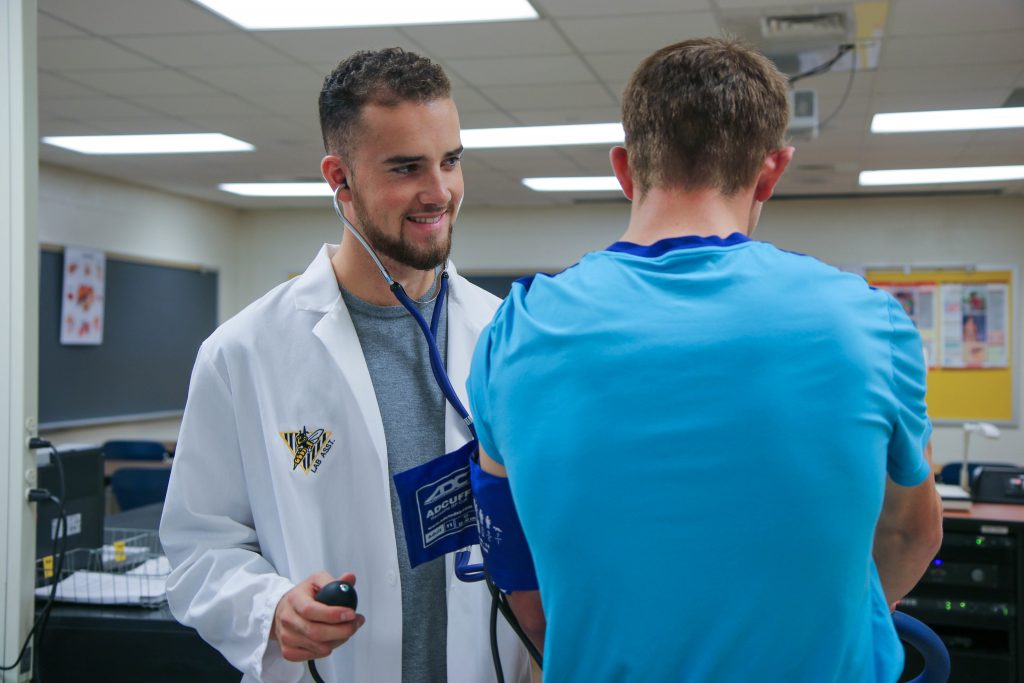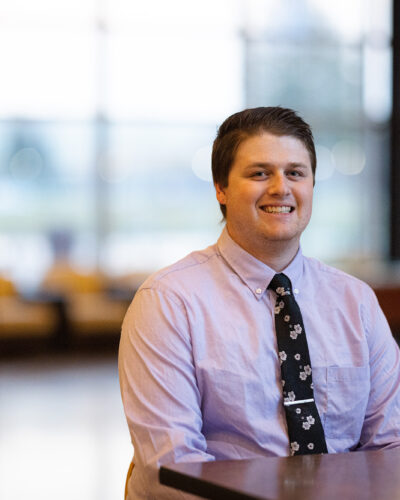
Overview
UW-Superior’s exercise science program provides the knowledge and skills to prepare you for a successful career in clinical exercise physiology, health and fitness fields. The program also lays the groundwork for entrance into graduate school for careers in exercise physiology, athletic training, physical therapy, occupational therapy, physician’s assistant and many other allied health careers. This program equips graduates to promote human health and performance in a variety of career paths. Exercise science is one of several concentrations students are able to choose from while pursuing their degree in physical education.
What You’ll Learn
Program coursework provides basic and advanced knowledge of the structure and function of the human body as well as applied areas such as exercise physiology, pathophysiology, kinesiology and motor learning. Hands-on experiential learning is woven into coursework to enrich students’ knowledge of research methods, leadership skills, and assessment. You will graduate with a holistic understanding of wellness as you study the intersection of science and human performance. Courses within this program include:
- Basic and applied sciences
- Nutrition
- Exercise physiology
- Electrocardiography
- Exercise assessment/testing and prescription
Unique Opportunities
- Students are encouraged to take advantage of experiential learning opportunities such as internships and Academic Service-Learning. We recommend students earn NCCA-approved certifications and training from accredited organizations, such as the American College of Sports Medicine (ACSM), the National Strength and Conditioning Association (NSCA) and the American Council on Exercise (ACE), among others.
- Exercise Science majors can double major and also receive a degree in Public Health. An internship that aligns with career goals is required.
- The Health and Human Performance Department houses the Kessler Exercise Physiology Laboratory, a multifunctional exercise physiology lab where students learn and perform research and practice techniques related to their coursework and career goals.
- Students will collaborate with their major advisor and an instructor to synthesize the theories, concepts, and skill competencies they have learned into a formal capstone project. This capstone demonstrates each student’s ability to apply theoretical concepts to real-world experiences and solidifies their readiness for a career in exercise science.
Outcomes
The exercise science major leads to many health-related professional positions. Those marked with an asterisk (*) require additional graduate work:
- Exercise Physiology*
- Cardiovascular Rehabilitation*
- Pulmonary Rehabilitation*
- Sports Nutrition
- Physician’s Assistant *
- Physician *
- Physical Therapy *
- Occupational Therapy *
- Personal Trainer
- Health and Fitness Educator
- Strength & Conditioning Coach
- Athletic Coach
- Wellness Director
- Clinical Research Scientist *
- Sports Psychologist *
Typical exercise science work activities include:
- Educating individuals and organizations about exercise and lifestyle modification to control disease and illness
- Studying acute and chronic physiological adaptation to physical activity
- Studying physiological adaptations to aging
- Helping athletes develop programs to enhance their level of performance
- Conducting exercise programs for health maintenance
- Providing health and fitness evaluation
- Designing personalized exercise prescriptions for individuals or groups
- Offering exercise programming for seniors
- Assisting or leading rehabilitation in cardiovascular, pulmonary or orthopedic settings
Employment settings include:
- Hospitals
- Outpatient clinics
- Medically supervised fitness centers
- Sports complexes
- School systems
- Public health facilities
- Workplace wellness centers
- Government agencies
- Athletic programs
- Country clubs and resorts
- Centers for Disease Control
Ready to get started?
Applying to UW-Superior is easy and free for undergraduate students. Once your application is submitted, you’ll hear from us within just a few days. We’re here to help you every step of the way with any questions you may have, so why wait? Start your application today.
Request Information
"*" indicates required fields

Come Visit Us
Experience what makes this university truly Superior.
How Can We Help?
Not finding the answer to your question? Want to talk with a real live person? We’d love to hear from you! Contact us any time and we’ll be glad to help.
Call or Text: 715-394-8230


